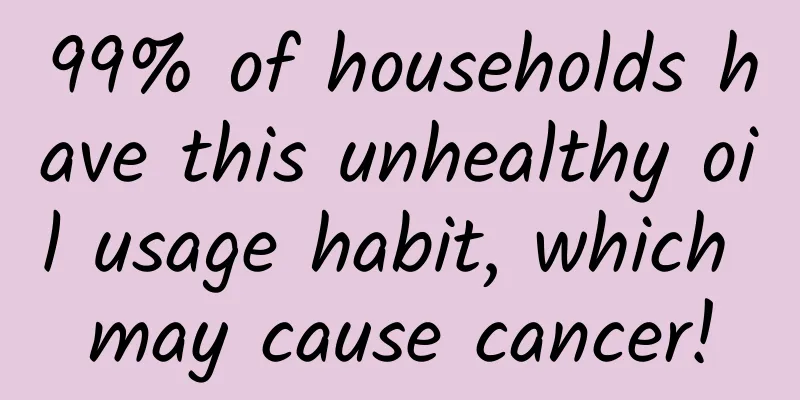What to do if breasts are always swollen

|
1. If your breasts begin to swell in the hospital after giving birth, you can use a breast pump to remove excess milk and soften your areola so that your baby can latch on correctly and empty your breasts more effectively. There will not be too much milk in the first week after the mother gives birth, so the breasts will feel slightly swollen. In the third or fourth week after delivery, the milk will flow continuously. At this time, the baby cannot finish it, so it is best to suck out the excess. This can relieve the symptoms of breast engorgement and prevent further deterioration. 2. Applying cold compresses or ice packs on the breasts can relieve the symptoms of milk engorgement. In the past, many people believed that hot compresses could relieve breast engorgement, but little did they know that hot compresses would make breast engorgement worse. When applying cold compress, to avoid frostbite, mothers can put a layer of cloth between the ice pack and the breast until the swelling is reduced and the milk flows out. Cold compresses can also relieve breast warmth and pain. 3. If your milk is engorged and your areola is too swollen so your baby can't get enough milk, you can squeeze out some milk before feeding to soften the areola so that your baby can suck on it. If your baby is not full, it is best to use a breast pump every 2-3 hours to express milk and ensure a normal milk supply. 4. Never stop breastfeeding when your breasts are swollen. Only by insisting on breastfeeding and releasing milk can the swelling be relieved. If milk engorgement is not relieved in time, it will worsen and cause mastitis. So don't just sit there and wait for the situation to get better during breastfeeding. Mothers should continue to use ice packs to relieve pain and swelling, invest in a breast pump, and seek guidance from a doctor. What are the dangers of postpartum mothers always having engorged breasts? 1. Breast engorgement is very bad for both mother and baby. Engorgement is when your breasts become full, swollen, or even hard and painful. It's a sign that your body is experiencing an imbalance between supply and demand of breast milk. If not treated in time, it can easily develop into mastitis for the mother. 2. Breast engorgement is not good for the baby. When the mother's breasts swell, the nipples become flat, making it difficult for the baby to suck, and the baby gets less milk. The baby's sucking will stimulate milk secretion, but it is difficult for the breasts to empty the milk, causing the breasts to swell further, making it even more difficult for the baby to suck on the nipple, thus creating a vicious cycle that is very troublesome for both mother and child. What should a new mother do if she has too much milk and her baby’s breasts are always swollen? I believe that after reading the above analysis, you already know the solution. It is important to note that breast engorgement can easily cause mastitis. The milk that the baby cannot finish must be emptied in time. It cannot be kept in the breast all the time. You can use a breast pump to drain it, which can prevent breast engorgement. Do new mothers understand? |
<<: What should I do if my period is too painful?
>>: What to do if you have milk swelling and low fever
Recommend
When is the best time to crack tea eggs? How long should tea eggs be boiled before breaking them?
There are many ways to eat eggs, and tea eggs are...
【Expert Interview】Talking about blood pressure issues in Parkinson's disease patients
Written on the upcoming 28th World Parkinson'...
Can I style my hair while breastfeeding?
Breast milk is the feeding method chosen by most ...
What are the symptoms of anal inflammation in women?
I believe everyone is familiar with cystitis. The...
[Anatomist who knows sports] How dare you exercise without stretching?
How dare you exercise without stretching? The dou...
Effects of Rubella Virus on Pregnant Women
I believe that many female friends, especially th...
Pictures of vulvar leukoplakia
Nowadays, women's reproductive health is rece...
What should be checked during prenatal check-up?
Prenatal check-ups are very necessary during preg...
【World Down Syndrome Day】Pay attention to the forgotten angels
In 1866, Dr. John Langdon Down discovered that th...
How to cure severe cervicitis?
Severe cervicitis is serious for women, because i...
Women who hold their urine for a long time may become infertile
I believe that many people have the habit of hold...
What to do if pregnant women have diarrhea and loose stools
When pregnant women are pregnant, the body is ver...
How to treat endometrial polyps? Four common therapies
If you have endometrial polyps for a long time, y...
[Medical Q&A] Can hepatic hemangioma be treated with ultrasound intervention?
Planner: Chinese Medical Association Reviewer: Wa...
What are the symptoms of selenium deficiency in women?
Every living thing on earth, including us humans,...









